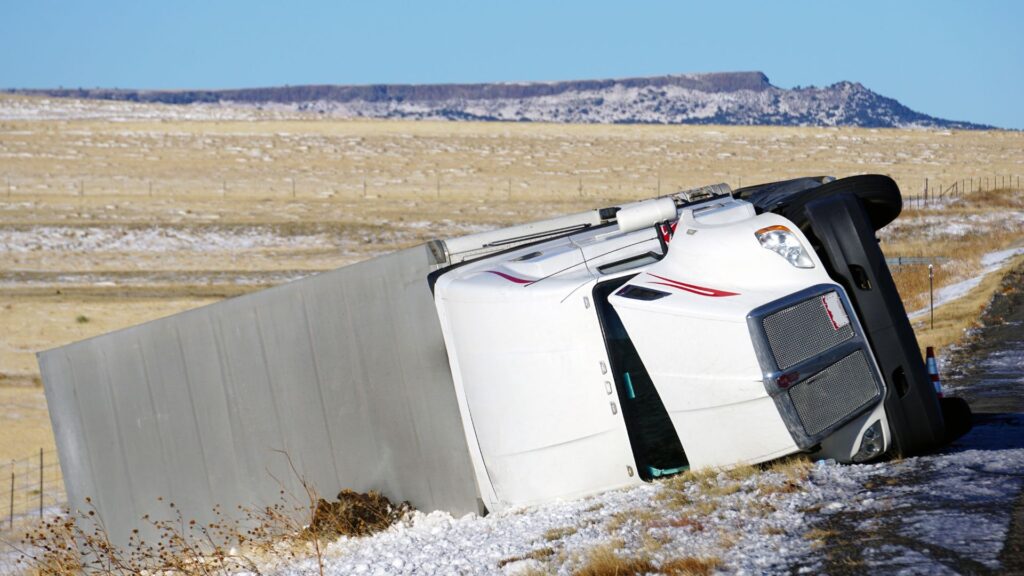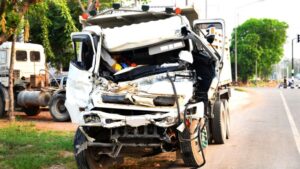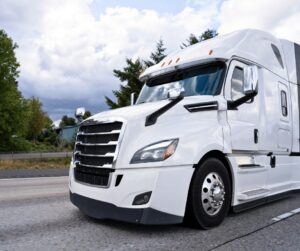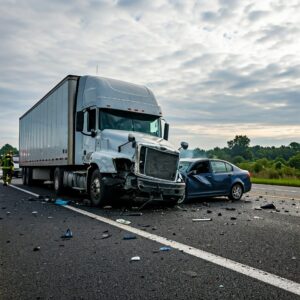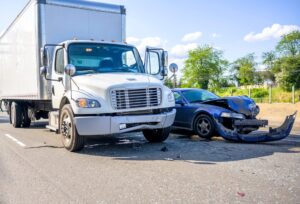 How Can I Prove That the Truck Driver Was Negligent in Causing the Accident?
How Can I Prove That the Truck Driver Was Negligent in Causing the Accident?
A crash with a big rig can leave behind catastrophic damages, life-altering injuries, and a whirlwind of financial problems. Your first thought might be to blame the driver, but what about the company the driver works for? Can you sue a trucking company in New York?
Depending on the facts of the case, yes. However, suing a trucking company for an accident can be complicated. Trucking companies are guarded by ruthless lawyers and insurers whose job is to protect the companies’ finances, not reimburse injured victims.
At Greenspan & Greenspan Injury Lawyers, we believe that victims also deserve fierce legal representation in their corner. As a team of lawyers that sue trucking companies, we have over six decades of experience advocating for victims hurt on New York’s roads. We are not afraid to stand up to powerful trucking companies and fight for the compensation you deserve. Read on to learn more about whether you can sue a trucking company.
When Can You Sue a Trucking Company?
Generally, you can sue a trucking company when their negligence—or the negligence of their driver—causes an accident that injures you.
Truck accidents are typically handled as personal injury cases, which means the injured party must prove that someone else’s negligence caused the crash. Negligence is a legal term for situations when someone fails to act with the care a reasonable person would exercise in a similar situation. You must prove the following four elements in a negligence claim:
- Duty. The trucking company had a legal duty to act reasonably and within the law.
- Breach of duty. The trucking company failed to meet this duty through legal or safety violations or failure to act.
- Causation. The company’s breach of duty directly caused the accident.
- Damages. You suffered damages, such as medical bills, lost wages, pain and suffering, and loss of enjoyment of life.
A trucking company can be held liable for an accident in two ways: the doctrine of respondeat superior and direct negligence.
Respondeat Superior
Respondeat superior is a legal doctrine that holds employers accountable for the negligent actions of their employees. So, if the truck driver is found to have acted negligently, you may be able to hold the trucking company liable. Common negligent actions by drivers include:
- Traffic violations,
- Operating while impaired,
- Fatigue, and
- Driving recklessly.
If the truck driver is found to be negligent, then you may be able to hold the trucking company liable.
However, to hold the trucking company responsible for its drivers’ actions, the truck drivers must be employees performing their normal employment responsibilities. If the driver was an independent contractor or was engaged in a non-work task, you may be unable to hold the trucking company liable.
Direct Liability
Trucking companies can also be held liable for their own negligent acts. Here are common reasons a trucking company may be found directly liable for an accident.
Failure to train
Trucking companies have the duty to provide adequate training to their drivers. Driving a truck is different from driving a passenger vehicle. Drivers must understand how to control a commercial truck, handle cargo, follow traffic laws and emergency procedures, and comply with federal regulations.
Trucking companies can be liable if they do not provide or check for this training and an accident happens.
Negligent hiring
Trucking companies also have a duty to hire qualified truck drivers. They must screen prospective employees, checking for a history of DUI or license violations. If they hire drivers who lack the skill and qualifications to drive a truck, they can be held liable for an accident caused by that driver.
Failure to maintain trucks
Trucking companies also have the duty to arrange for all truck maintenance. Trucks must be routinely inspected and repaired, if necessary. A malfunctioning truck, such as a vehicle with faulty brakes or engine issues, can cause serious problems and injure both the truck driver and other drivers.
Violations of federal regulations
Federal regulations limit the number of hours a driver can operate a truck without taking a rest. The goal is to prevent driver fatigue, which can be incredibly dangerous on the road. Trucking companies have been known to pressure truck drivers to violate these regulations to meet delivery schedules. If this causes an accident, the trucking company can be held liable for the damages and injuries.
What Evidence Do You Need When Suing a Trucking Company for an Accident?
To establish liability for a truck accident, you must provide concrete evidence to support your claim. Critical evidence may include the following:
- Photos of the accident scene,
- Vehicle maintenance records,
- Information from the Event Data Recorder (EDR) or Electronic Logging Device (ELD),
- Truck dashcam video,
- Driver personnel files,
- Video surveillance or traffic camera footage,
- Company policies,
- Police reports, and
- Witness statements.
Securing this evidence as soon as possible is imperative. An experienced truck accident lawyer can help collect evidence and analyze records to build a strong case for you.
How Long Do I Have to File a Lawsuit Against a Trucking Company?
In New York, you have three years from the date of the accident to file a lawsuit against a trucking company. If you fail to file by this deadline, you will typically be barred from financial recovery. So, it is critical that you contact a seasoned truck accident attorney as soon as possible so they can help preserve your rights.
Speak to Greenspan & Greenspan Injury Lawyers Today About How to Sue a Trucking Company
If you were injured in a truck accident, do not try to handle this devastating ordeal alone. At Greenspan & Greenspan Injury Lawyers, we understand the challenges you and your family are facing. We are committed to protecting the rights of the Westchester County, Rockland County, and Bronx communities we have served for the past six decades.
Truck companies have numerous resources at their disposal and will fight to protect their reputations and profit margins. However, our goal is to ensure these companies are held responsible for their negligent actions. When you come to us, we work to handle all parts of your claim, from gathering evidence to negotiating settlements. You are more than just another case for us. We want to help you and your family get the guidance you need to move on. Contact us today for a free case evaluation to learn more about your options.

